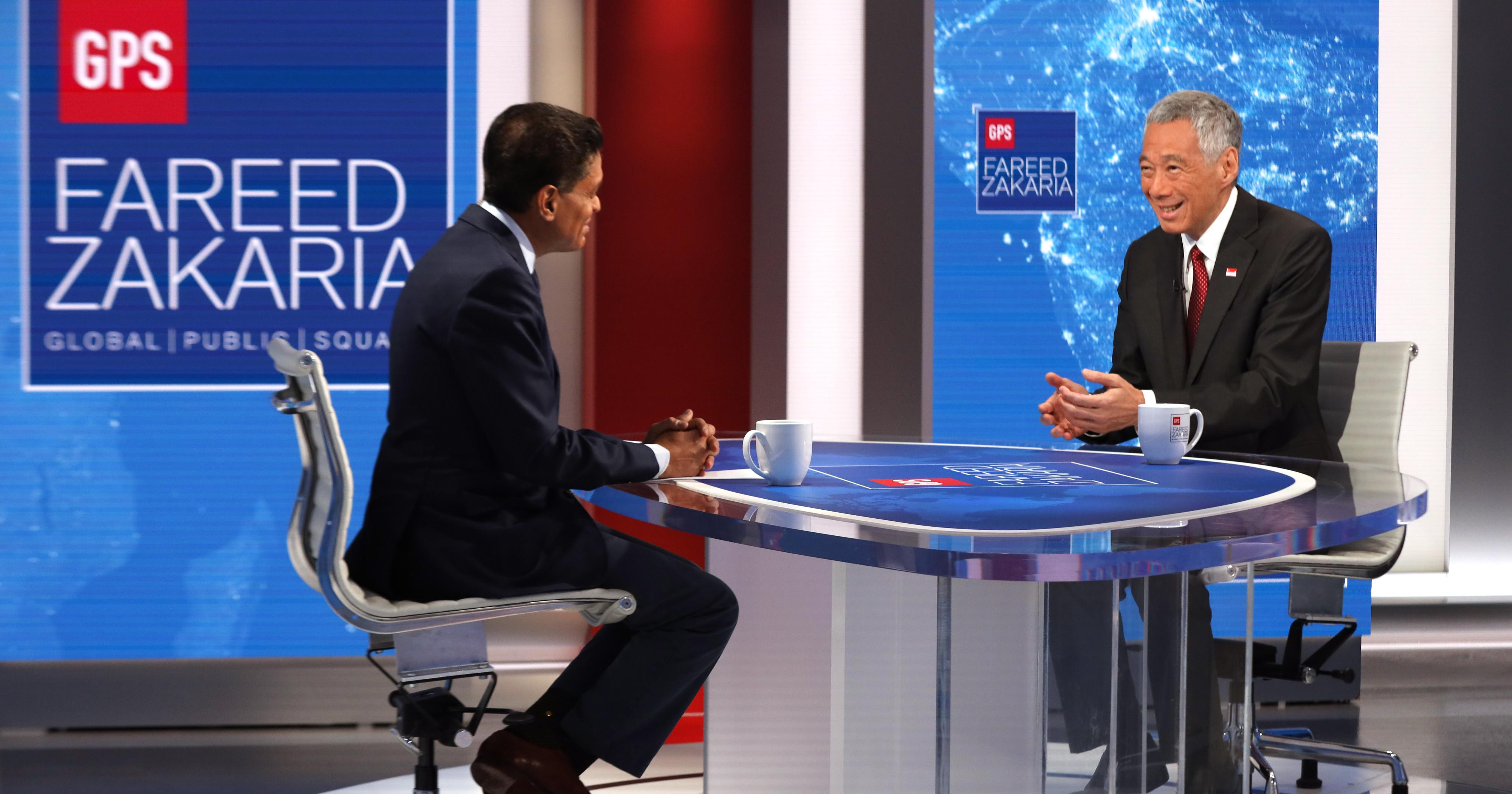Prime Minister Lee Hsien Loong was interviewed by CNN's Fareed Zakaria on his weekly public affairs show.
In the October 6 segment of Fareed Zakaria GPS, they spoke about two main issues.
1. The U.S.- China tensions
3. Singapore and its political system
1. China and U.S.
The main topic of interest was understandably about the Sino-American tensions.
Zakaria touched on the different administrations of the two countries and whether that had an impact on how the current geopolitical kerfuffle is turning out.
He asked if one of the problems was that China under Xi Jinping has become more nationalistic in, and adopted a "more aggressive" behaviour in the South China Sea.
PM Lee replied that China had changed, that it had "grown bigger, more stronger, more influential to create an interest internationally, and a greater desire to influence events internationally".
PM Lee also acknowledged that China has to do that in a way that will constructively engage the world at large.
According to Lee, the theme of China becoming vastly more powerful within a few decades might have also resulted in a change in expectations from both China itself, and the rest of the world.
Zakaria subsequently asked for PM Lee's views on the Trump administration's argument that China had gamed the World Trade Organisation (WTO) by restricting western companies access to the Chinese market.
Lee countered that China did not promise openness that was similar to the U.S. in 2001 when they first joined the WTO. He added that China had for the most part fulfilled their promises made when they first joined.
The issue now though is China's growth has been astronomical, and thus "the arrangements which were wearable then politically for other countries, not just the United States, have now become really outdated, and are no longer wearable".
But while concepts of balance might have to be addressed, he noted that the current tensions aren't good for anyone.
"All of us have depended on stable US-China relations, increasingly close US-China economic cooperation, investments, trade, as well as flows of talent and ideas. The way things are going now, that benign trend is being disrupted, and perhaps even turned around. I think that is bad for the world."
2. Hong Kong protests
Speaking of tension, the Hong Kong protests was a topic brought up during the interview.
Zakaria asked PM Lee what his thoughts were on the situation in Hong Kong.
PM explained about the intricate relationship between China and Hong Kong.
"I feel very sorry for the situation which Hong Kong is in because they are a city with a lot of talent, enterprise, and potential. They are right on the doorstep of China, and China has been a backstop for them, which enabled them to grow and to overcome many economic rough spots.
But at the same time, they are part of China, and this is a big psychological change, which is not easy for the population to get used to. There are also issues within Hong Kong, which are quite fundamental – social issues like housing."
And acknowledged that it is the youth that will have to be convinced.
"Fundamentally, it is a question of hope for the future for the young people. If these are not radically addressed, I think it is very difficult to overcome the problems."
He was also questioned on the prospects of China using force to put an end to the protests.
PM Lee did not think that would happen, he also didn't believe that the Chinese government caused the protests to happen.
"I think that they are now confronted with this frog in their hands and what do I do with it? I am uncomfortable, it is a problem. But if I do the wrong thing, I may make things a lot worse."
He further added that he believes China would rather HongKongers manage to solve the problem themselves.
3. Singapore and its political system
On Singapore, CNN decided to engage PM Lee in some crystal gazing.
Noting people's observations that Singapore political system "is too unfairly tilted towards the ruling party", Zakaria asked where PM Lee thinks Singapore will be in 10 years, and whether there would be a more balanced two-party system.
PM Lee rejected the premise of a two-party system naturally being a better system for Singapore.
"I hope that 10 years from now, even 20 years from now, Singapore will have a system, which is functioning for it, which commands respect from the population and acceptance that this is a system, which is working for them and delivering good government to them."
He also considered having a leadership team that is "competent, committed and delivering results" to be more important, and took a slight dig at CNN's line of questioning.
"I think that is the key test. It is not whether you have got the right numerical balance in Parliament, between the opposition and the government. Do you have enough material to keep CNN actively and interestingly on the air. But is it functioning to govern Singapore well, and to deliver security, prosperity, and the future for Singapore?"
Zakaria pressed on, wondering whether a country with a party that wins 80 per cent of votes for 50 years can truly be considered "a real democracy".
To which PM Lee replied "if that is how the population votes and that is the will of the people, why should that not be a real democracy?"
When asked about the unfair advantages a 50-year dominance a party might have on the electoral process, PM Lee pointed to how every seat was contested during the last election.
And as for what he might do when he finally steps down?
"I think I will worry about that when the time comes."
Image from Ministry of Communications and Information
If you like what you read, follow us on Facebook, Instagram, Twitter and Telegram to get the latest updates.
